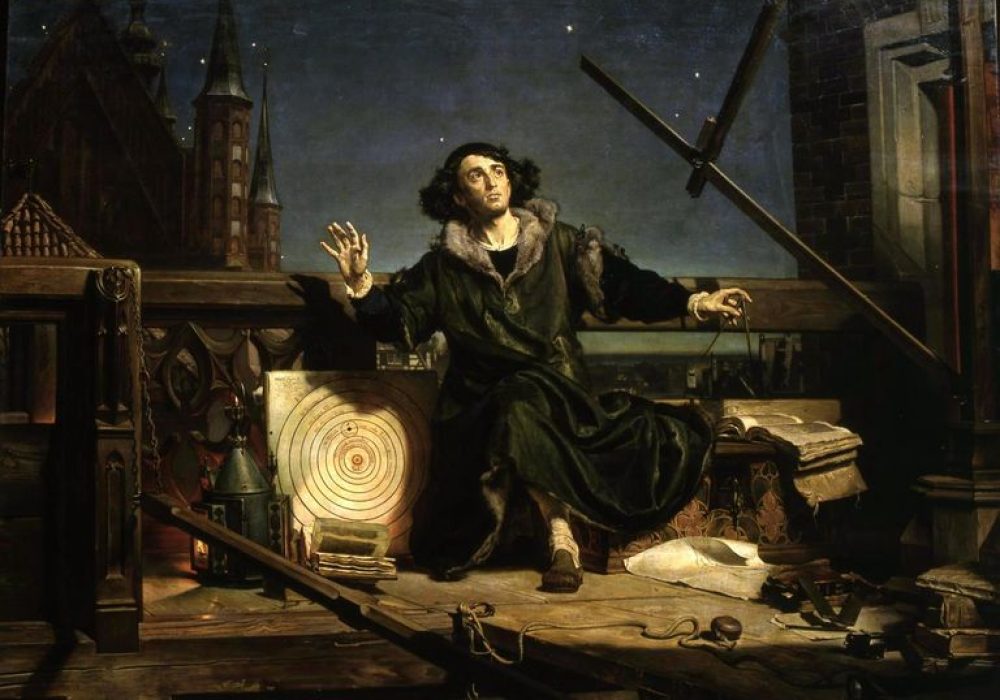Open to all high school students, parents, and teachers. Students attend for FREE (and all adult admission fees are waived if accompanied by at least one student.)
In partnership with the Soceity of Catholic Scientists and the McGrath Institute for Church Life. Cosponsored by the Archdiocese of Chicago Vocations Office and the University of St. Mary of the Lake/Mundelein Seminary.
Want to learn from accomplished Catholic scientists about the harmony of faith and science? Interested in the Big Questions on the frontiers of scientific discovery? Then come to this Science and Religion Fair on February 5th at the University of St. Mary of the Lake/Mundelein Seminary.
Attendees will get to learn from distinguished scientists who embrace both the Catholic faith and modern science, following the example of St. Albert the Great, patron saint of science.
Conference Highlights Include:
- One 25-minute Opening Talk on Science and Faith, and Cosmology and Extraterrestrial Life.
- Many have claimed that modern science and Christian faith are fundamentally at odds and have historically been in conflict. Professor Stephen Barr, President of the Society of Catholic Scientists, will show how a better understanding of Catholic teaching, of science and of history paint a very different picture.
- Many have claimed that modern science and Christian faith are fundamentally at odds and have historically been in conflict. Professor Stephen Barr, President of the Society of Catholic Scientists, will show how a better understanding of Catholic teaching, of science and of history paint a very different picture.
- A choice of multiple ‘Lightning Round’ Talks on crucial topics:
- “Is the Universe Made for Life?” (Stephen Barr, President, Emeritus Professor of Physics, University of Delaware): In recent decades physicists have discovered that many features of the fundamental laws of physics are “just right” to make life (including complex living things such as ourselves) possible. These are sometimes called “anthropic coincidences.” Do these show that the universe was made with us in mind? Or does the “multiverse” idea explain them? Or possibly both?
- “What is a human being and when does life begin?” (Maureen Condic, Assoc. Professor of Neurobiology and Anatomy, Univ, of Utah School of Medicine): The questions of who is a human being and when does a human being arise during the process of human development have profound implications for society, for medicine and for the law.
- “Earthquakes, their Consequences, and the Jesuit Pioneers of Seismology” (Natasha Toghramadjian, 4th year graduate student, Harvard University): The great earthquake of 1755 obliterated the Catholic city of Lisbon and caused many to question their faith. It also spurred the creation of the science of seismology, often called “the Jesuit Science” because of the pioneering work of Jesuit missionaries who set up the first seismic stations in many areas of the globe. This talk will tell about the remarkable history of earthquakes and their consequences and the speaker’s own field work on three continents.
- “Wonder in Science and Faith” (Chris Stoughton, Senior Scientist at Fermilab): Dr. Stoughton will talk about wonder and the approach of scientists to their work, both in historical examples and through the witness of contemporary scientists.
- “Evolution and Creation: A Catholic Perspective” (Sr. Stephen Patrick Joly, O.P., Ph.D., Lansing Catholic HS): For some, the scientific theory of evolution is seen as incompatible with a God who has knowingly and purposely fashioned us. But, as s Pope Benedict XVI stated, creation and evolution represent “two complementary — rather than mutually exclusive — realities.” This talk will guide participants to see the harmony between evolutionary biology and the Catholic faith.
- “Modern Science, the Catholic Church, and the Galileo Affair” (Cory Hayes, Professor of Philosophy and Theology, St. Joseph Seminary College): Beginning with Copernicus and ending with St. John Paul II, Dr. Cory Hayes will examine the trials of Galileo, the major players involved and the issues that were at play in his 1633 condemnation by the Inquisition, overcoming misconceptions and deepening our understanding of the lessons it has for us today.
- “Extraterrestrial Life and the Catholic Faith” (Tim Dolch, Assistant Professor of Physics at Hillsdale College.): How likely are rational ET creatures to exist? How do scientists search for them? What theological questions would their existence raise?”
- Big Questions/Ask-a-Scientist Poster Session
- Attendees will have an opportunity to meet Catholic scientists one-on-one and ask them about their fields of science, career paths, the big unsolved questions in their areas of science, being a Catholic in science, and anything that they are curious about. The scientists they will meet will be a varied group: young and old; male and female; experimenters and theorists; and in many areas of research. Students interested in STEM subjects and teachers interested in renewing their own understanding will dialogue about high-impact topics, including: genetics, mathematics, materials science, evolutionary biology, superstring theory, cosmology, environmental science, neuroscience and brain research, and much more.
Schedule:
9:00am – 9:45am: Breakfast and Registration
9:45am – 10:00am: Opening Prayer, Welcome & Introduction
10:00am – 10:45am: Keynote “Science and the Catholic Faith” (Stephen Barr, President, Society of Catholic Scientists)
10:45am – 11:00am: Break
11:00am – 11:30am: Lighting Round Talks #1
11:30am – 12:30pm: Lunch
12:45pm – 1:15pm: Lighting Round Talks #2 (with optional adoration in Conference Center Chapel)
1:15pm – 1:25pm: Break
1:30pm – 2:00pm: Lighting Round Talks #3 (with optional adoration in Conference Center Chapel)
2:00pm – 2:15pm: Break
2:15pm – 3:30pm: “Big Questions/Ask-a-Scientist” Poster Session
3:30pm: Closing Remarks and Prayer
Learn more about this and other Newman Forum events on the Newman Forum website.

